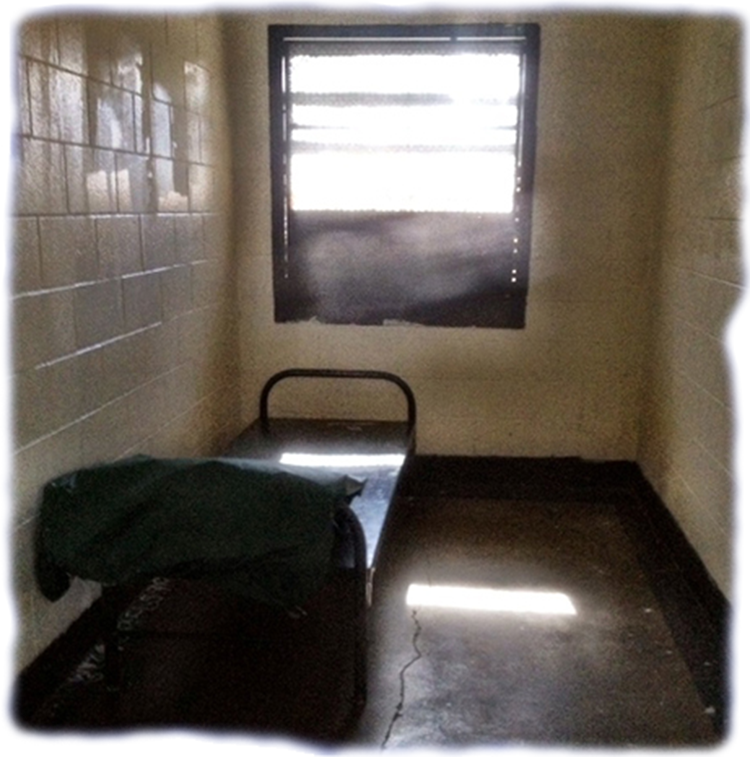
Celeste Fremon/WitnessLA
Solitary juvenile cell
LOS ANGELES — The Los Angeles County Board of Supervisors unanimously passed a motion Tuesday that bans the use of solitary confinement — in all but the most exceptional circumstances — in all the county’s juvenile detention facilities.
Solitary confinement “doesn’t improve behavior,” said Board Supervisor Sheila Kuehl. “It doesn’t promote rehabilitation. … And [nationally] 50 percent of our young people who commit suicide were in room confinement at the time of their suicide.”
Los Angeles County oversees the largest juvenile justice system in the nation, housing approximately 1,200 youth. This decision could potentially have a contagious effect on other counties and their juvenile justice systems, in California and beyond, observers say. The change is to be made by the end of September.
Last year, a similar bill for the entire state was killed in committee. A revamped version has been reintroduced by state Sen. Mark Leno again this year.
Two juvenile camps of LA’s 13 and one of three juvenile halls will do away with solitary by the end of May. Those three facilities will serve as models for the rest of system, said interim Probation Chief Cal Remington.
Remington cautioned that kids “may be separated as a short-term response when their behavior poses a serious risk to themselves and others.”
He also said the environments in which a young person might be placed for such a cool down would be very different than the current cell-like rooms. “We want the situation to be a calming experience,” he said, listing changes in furniture, lighting, window treatment and wall colors. ... We’re talking about cultural change.”
Staff training will be very important, he said: “The staff have to feel safe.”
A panel of experts spoke about the motion at the hearing before the vote.
“Study after study has shown that solitary confinement can have devastating mental-health effects on adults,” said juvenile advocate Kirn Kim, who as a teenager spent 15 months in solitary, from 16 to 18. “So I ask, how can its use ever be justified for juveniles? The teenage brain is still developing. Youth have a lesser capacity to cope with stress than adults. To force that level of stress on a young person, especially those who have already been traumatized, only leads to further problems ... As any parent can attest, children act out. These kids have been traumatized, they are put in solitary confinement, and they act out further.”
Attorney Jo Kaplan, who is a member of the Probation Commission and a longtime child advocate, made clear that getting rid of juvenile solitary was overdue. “For close to two decades we’ve had the Department of Justice monitoring probation,” she said. “This solitary confinement motion is symbolic of [a department] that, in the past, was stuck on stupid.”
Several young people in the audience talked about their own experiences in solitary. “It was horrible,” said Francisco Martinez, who was from the Youth Justice Coalition. “An animal in a cage.”
This story originally appeared on WitnessLA.